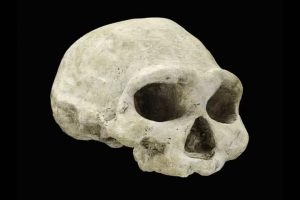While every human being is different from others, there are some common denominators that are present in most of us and one of them is feeling pain. Now as per a report in independent.co.uk there is a 75-year-old British woman, Jo Cameron, who feels no pain!
This condition is due to a rare genetic mutation according to scientists which allows her a pain-free life and also one which is devoid of anxiety or fear. The University College London experts discovered that it was changes in the FAAH-OUT gene work at the molecular level that allowed Cameron, who hails from Scotland to escape pain. They also revealed that the same change made the wounds heal faster.
Imagine going through life without experiencing any physical pain? That includes enduring childbirth without any kind of medical relief!
That’s the reality for Jo Cameron who’s been diagnosed with a rare genetic mutation estimated to affect just one in several million pic.twitter.com/c5Wd3n0nM7
— This Morning (@thismorning) April 5, 2019
It was in 2019 that Cameron who lives near Loch Ness in the Highlands hit the limelight when UCL researchers declared that alterations in the FAAH-OUT about which not much was known in the past, made her experience no fear, pain or stress.
It was quite late in life, Cameron herself realised this condition. At the age of 65 she underwent treatment for a medical problem in the hip. This on examination turned out to be a severe joint degeneration but surprisingly she never felt any pain of this condition.
While getting a surgery done on her hand at Raigmore Hospital in Inverness following the treatment for hip, she told the doctors that she had no pain even though the treatment in itself is very painful.
Working on this, scientists discovered that the FAAH-OUT variation switches off the FAAH expression concerned with memory, pain and mood. The enzyme activity levels in the FAAH were less in Cameron’s case.
Changes in two other genes – DNF and ACKR3 – scientists suggest may play a part in Cameron’s low anxiety, fear and painlessness.
Elaborating on this study, Dr Andrei Okorokov of UCL Medicine and the study’s senior author remarked: “The FAAH-OUT gene is just one small corner of a vast continent, which this study has begun to map. As well as the molecular basis for painlessness, these explorations have identified molecular pathways affecting wound healing and mood, all influenced by the FAAH-OUT mutation.”
Okorokov went on to add: “As scientists it is our duty to explore and I think these findings will have important implications for areas of research such as wound healing, depression and more.”
Details of this study have been published in the journal Brain. It promises opening new avenues in development of drugs for healing of wounds and management of pain.
Commenting on this, UCL Medicine’s Professor James Cox and study’s senior author observed: “By understanding precisely what is happening at a molecular level, we can start to understand the biology involved and that opens up possibilities for drug discovery that could one day have far-reaching positive impacts for patients.”




















